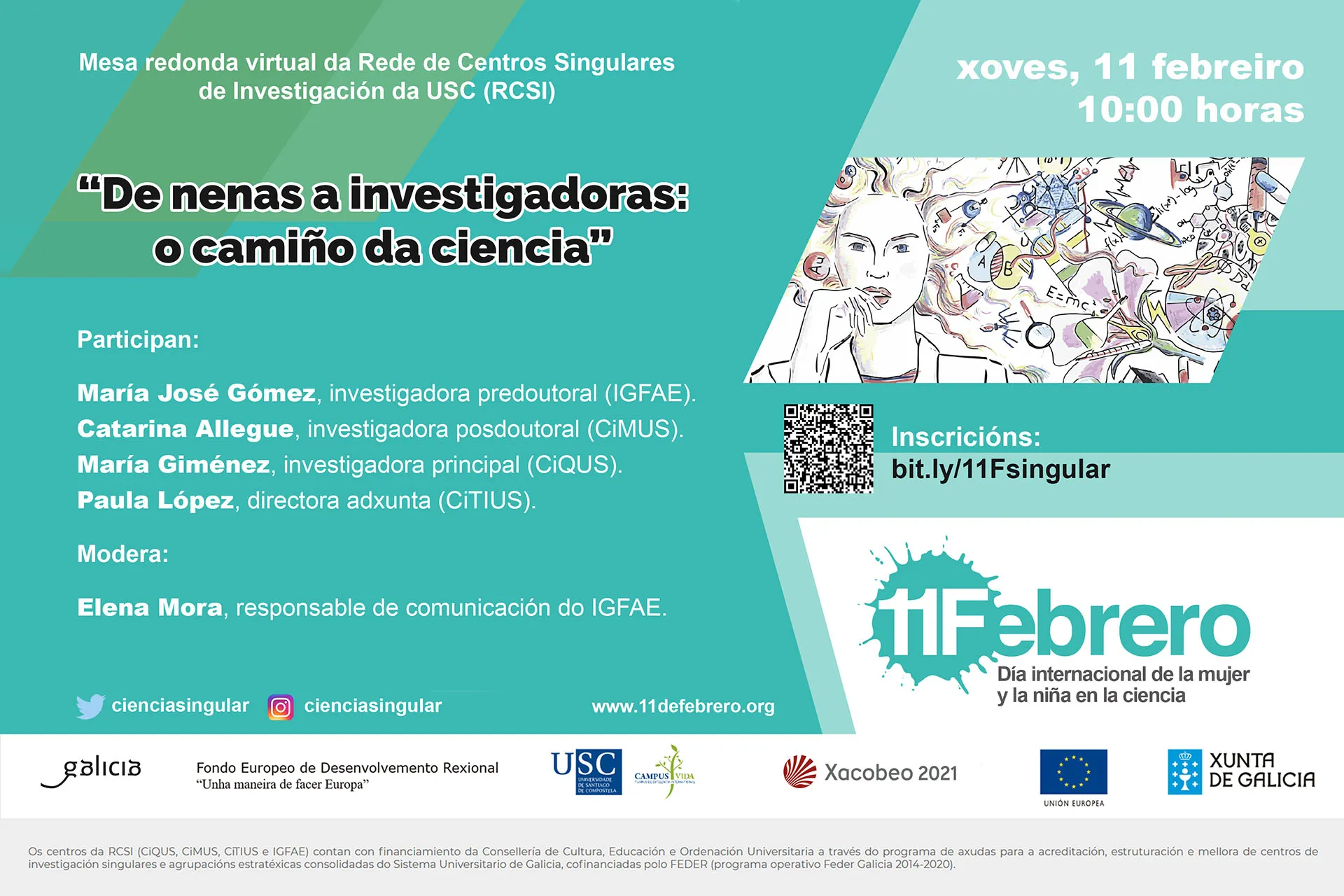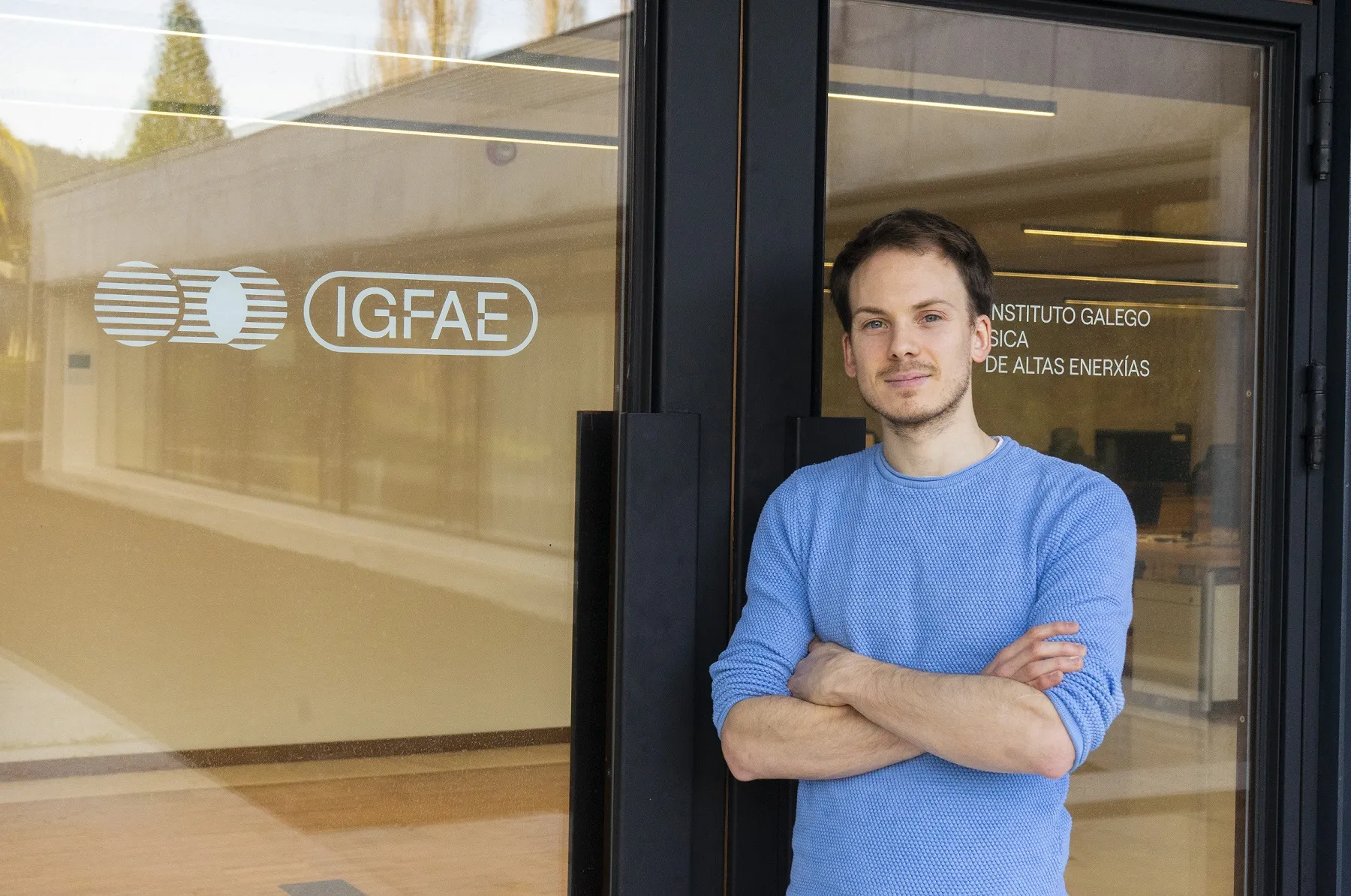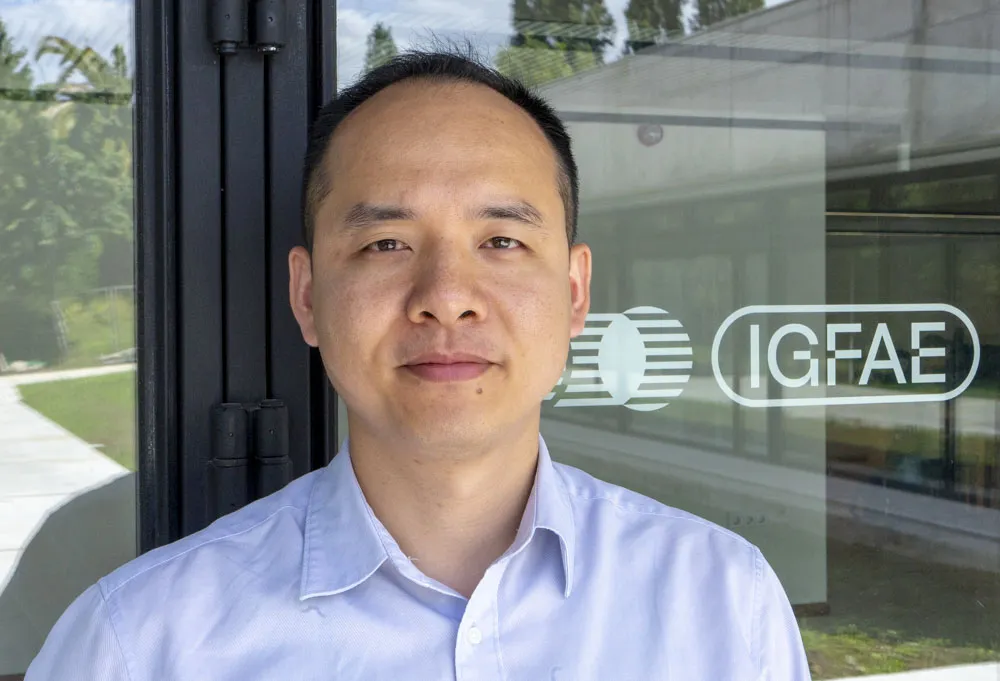É o título da mesa redonda que organizará a Rede de Centros Singulares da USC (RCSI), conformada polo IGFAE, CiMUS, CiQUS e CiTIUS, o próximo 11 de febreiro, coincidindo co Día Internacional da Muller e a Nena na Ciencia
A investigación de excelencia da USC, no marco da iniciativa Ciencia Singular e a través dos seus centros singulares IGFAE, CiMUS, CiQUS e CiTIUS, diríxese de novo á sociedade para celebrar con centros educativos de toda Galicia o Día Internacional da Muller e a Nena na Ciencia 2021. En formato virtual, a actividade busca achegar as experiencias de investigadoras de diferente perfil e etapa profesional co obxectivo de promover vocacións científicas. Investigadoras en fase predoutoral, posdoutoral, xefas de grupo e directivas dos catro centros singulares da USC contarán as claves, anécdotas e logros das súas traxectorias a fin de espertar a chamada da ciencia en nenas e mozas que decidan orientar a súa formación cara a diferentes ámbitos da ciencia.
Moderada pola responsable de comunicación do IGFAE, Elena Mora, a mesa de debate contará coa participación de:
- CiTIUS: Paula López, directora adxunta do CiTIUS.
- CiQUS: María Giménez, Investigadora Principal.
- CiMUS: Catarina Allegue, investigadora posdoutoral.
- IGFAE: María José Gómez, investigadora predoutoral.
A actividade terá lugar ás 10 horas o vindeiro xoves, 11 de febreiro e require inscrición previa, a través deste formulario ata completar prazas.






